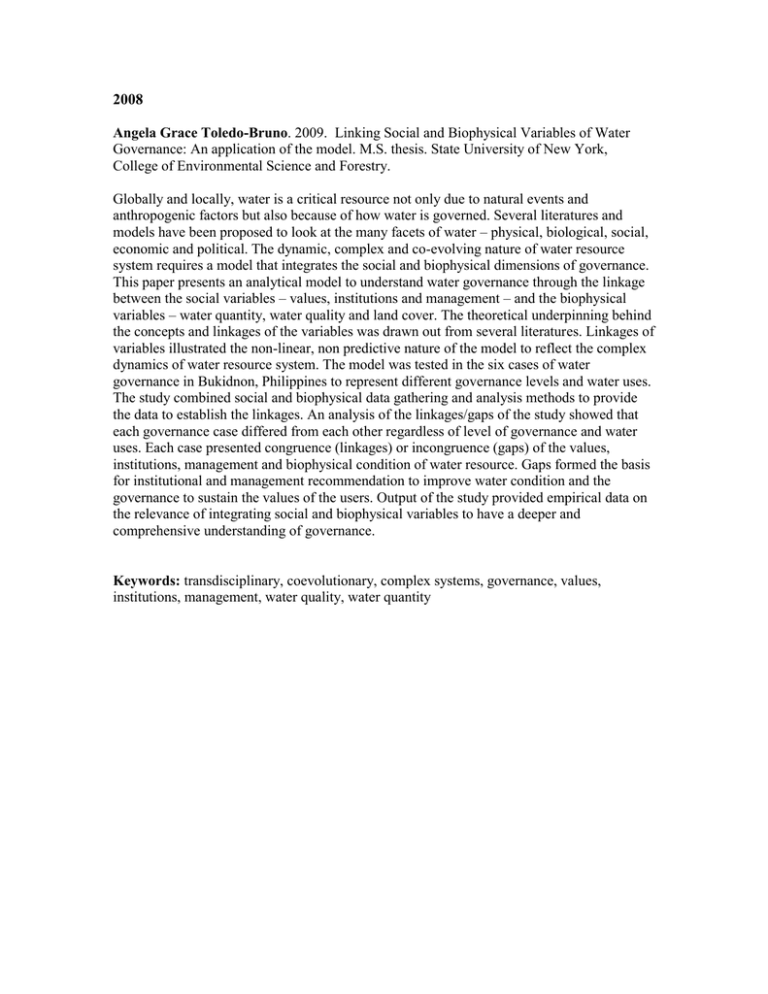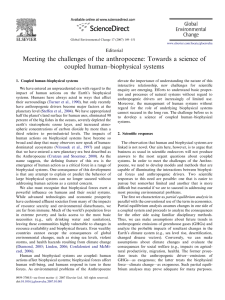2008
advertisement

2008 Angela Grace Toledo-Bruno. 2009. Linking Social and Biophysical Variables of Water Governance: An application of the model. M.S. thesis. State University of New York, College of Environmental Science and Forestry. Globally and locally, water is a critical resource not only due to natural events and anthropogenic factors but also because of how water is governed. Several literatures and models have been proposed to look at the many facets of water – physical, biological, social, economic and political. The dynamic, complex and co-evolving nature of water resource system requires a model that integrates the social and biophysical dimensions of governance. This paper presents an analytical model to understand water governance through the linkage between the social variables – values, institutions and management – and the biophysical variables – water quantity, water quality and land cover. The theoretical underpinning behind the concepts and linkages of the variables was drawn out from several literatures. Linkages of variables illustrated the non-linear, non predictive nature of the model to reflect the complex dynamics of water resource system. The model was tested in the six cases of water governance in Bukidnon, Philippines to represent different governance levels and water uses. The study combined social and biophysical data gathering and analysis methods to provide the data to establish the linkages. An analysis of the linkages/gaps of the study showed that each governance case differed from each other regardless of level of governance and water uses. Each case presented congruence (linkages) or incongruence (gaps) of the values, institutions, management and biophysical condition of water resource. Gaps formed the basis for institutional and management recommendation to improve water condition and the governance to sustain the values of the users. Output of the study provided empirical data on the relevance of integrating social and biophysical variables to have a deeper and comprehensive understanding of governance. Keywords: transdisciplinary, coevolutionary, complex systems, governance, values, institutions, management, water quality, water quantity




